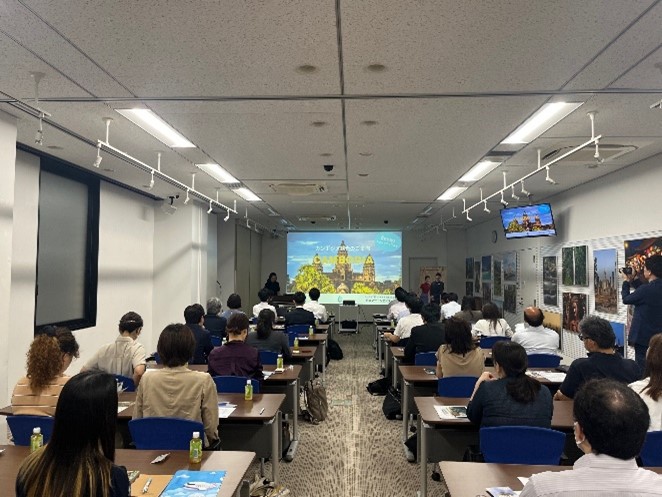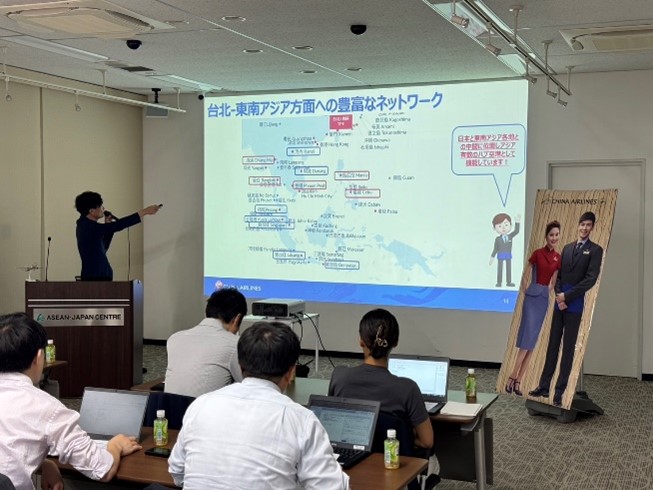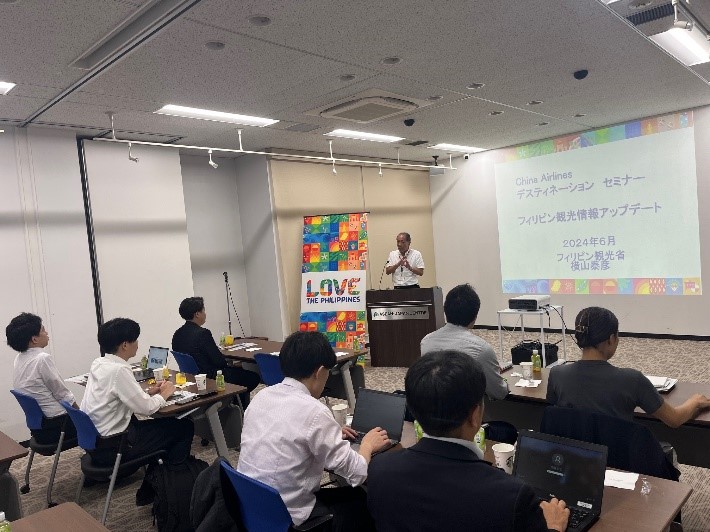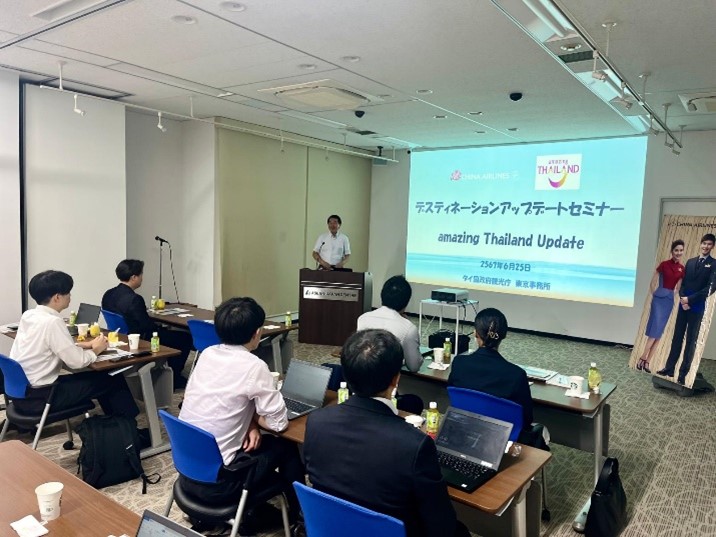The ASEAN-Japan Center, in collaboration with the Tourism Authority of Thailand, the Philippines Department of Tourism, and China Airlines, hosted a seminar focused on enhancing information on tourism and flight connectivity across the ASEAN region.
Background: Current Challenges in Japanese Outbound Travel
Despite record numbers of foreign visitors to Japan, outbound travel by Japanese citizens has yet to fully rebound to pre-pandemic levels. Significant factors contributing to this issue is the scarcity of airline seats, exacerbated by high demand from inbound tourists, and soaring international airfare. Through initiatives from the National Tourism Offices of ASEAN, the seminar was organized to introduce a variety of travel route options to ASEAN to reach a wider segment of travel consumers including young travelers.


Seminar Objectives and Highlights
The seminar targeted travel company planners and product developers, aiming to facilitate the creation and promotion of new travel products. Key highlights included:
- Tourism Authority of Thailand: Provided detailed insights into tourism statistics, regional attractions, and thematic travel options.
- Philippines Department of Tourism: Presented diverse travel information, highlighting attractions and tourism sites categorized by theme and region.
- ASEAN-Japan Centre: Shared updates on Cambodia’s tourism landscape, the trial operation of an e-Arrival Card for streamlined immigration, and the opening of a new airport in Siem Reap in 2023.
- China Airlines: Discussed their expanded aircraft fleet on Japan routes, flight schedules, airport facilities, and a comprehensive network facilitating connectivity across ASEAN countries.


Participant Response
Feedback from attendees underscored the seminar’s value in shaping future travel products:
- 96.4% found the seminar instrumental in developing and promoting new travel products.
- Respondents expressed keen interest in integrating destinations such as Thailand (89%), the Philippines (82%), Cambodia (82%), and transit options in Taiwan (92%) into their upcoming travel offerings.
Key Takeaways
The seminar addressed the pressing issue of securing adequate flight seats for travel products by highlighting extended flight connectivity options to and within ASEAN. Participants noted several benefits of arranging connection flights to their product development, including access to cities lacking direct flights, the possibility of multi-city trips via transit points, and cost-effective flight arrangements when direct flights are unavailable. However, concerns about prolonged travel times and limitations on same-day transfers were also acknowledged.
Future Considerations
Participants promoting overseas travel sales identified the following future concerns: “yen depreciation”, “fuel costs”, and “inflation and high cost of living”, all of which are cost-related. As travel styles diversify and consumers prioritize different aspects such as cost, time, and quality, there is a demand for developing a variety of travel products. Meeting these challenges will require tourism boards and airlines to provide regular updates, proactive destination PR campaigns, and enhanced media exposure.
Conclusion
The seminar effectively addressed critical issues impacting Japanese outbound travel, offering practical solutions through extended flight connectivity and informed product development strategies. Moving forward, ongoing collaboration and proactive measures will be essential to meeting evolving consumer demands and maintaining sustainable growth in ASEAN tourism.
About the Event
ASEAN Destinations Update Seminar
Date: 25 June 2024
Participants: 33 travel agents

